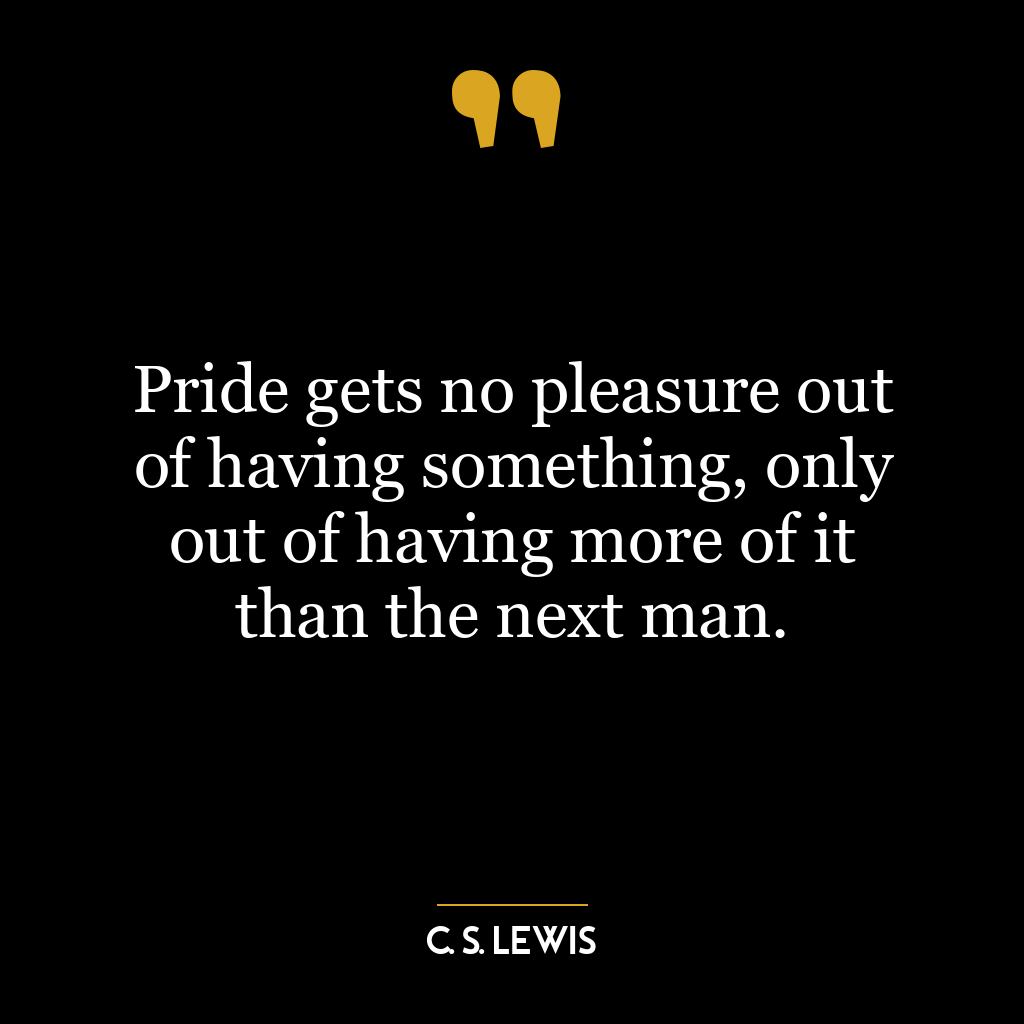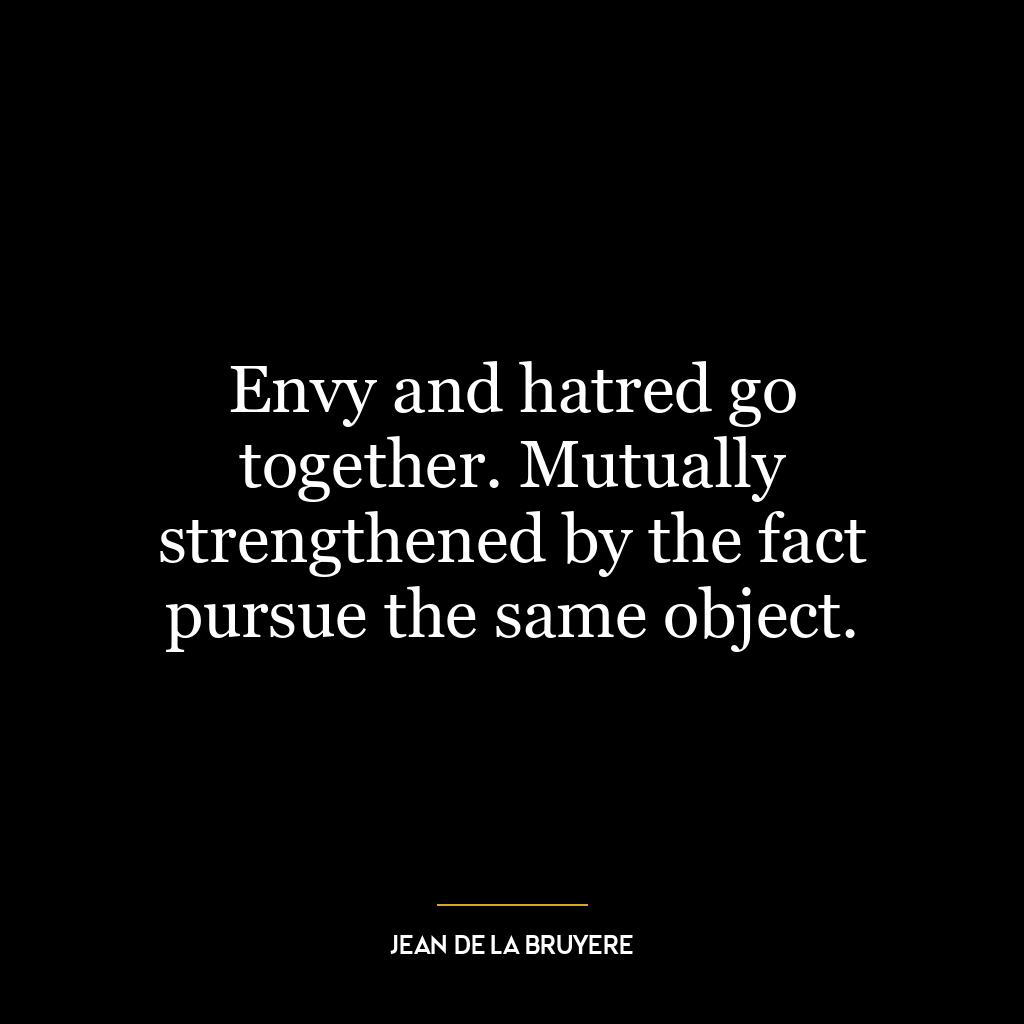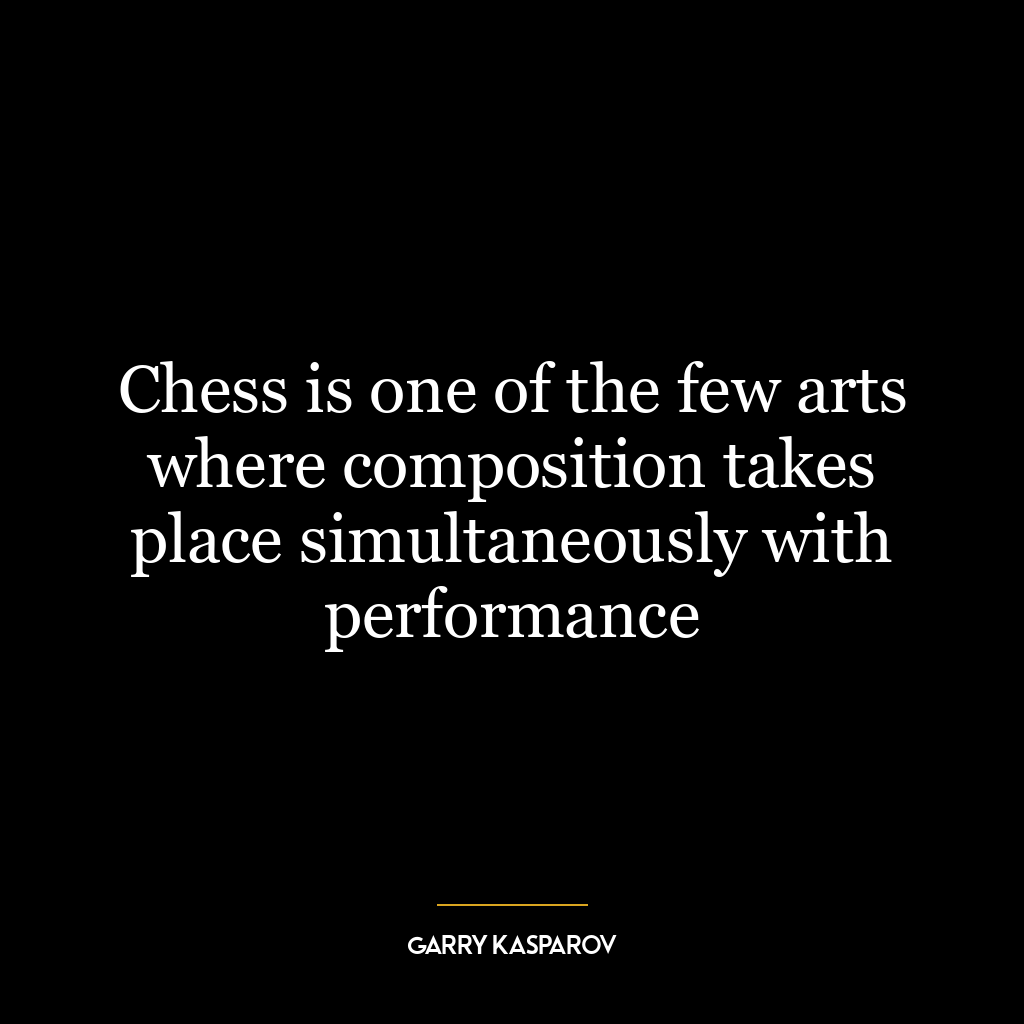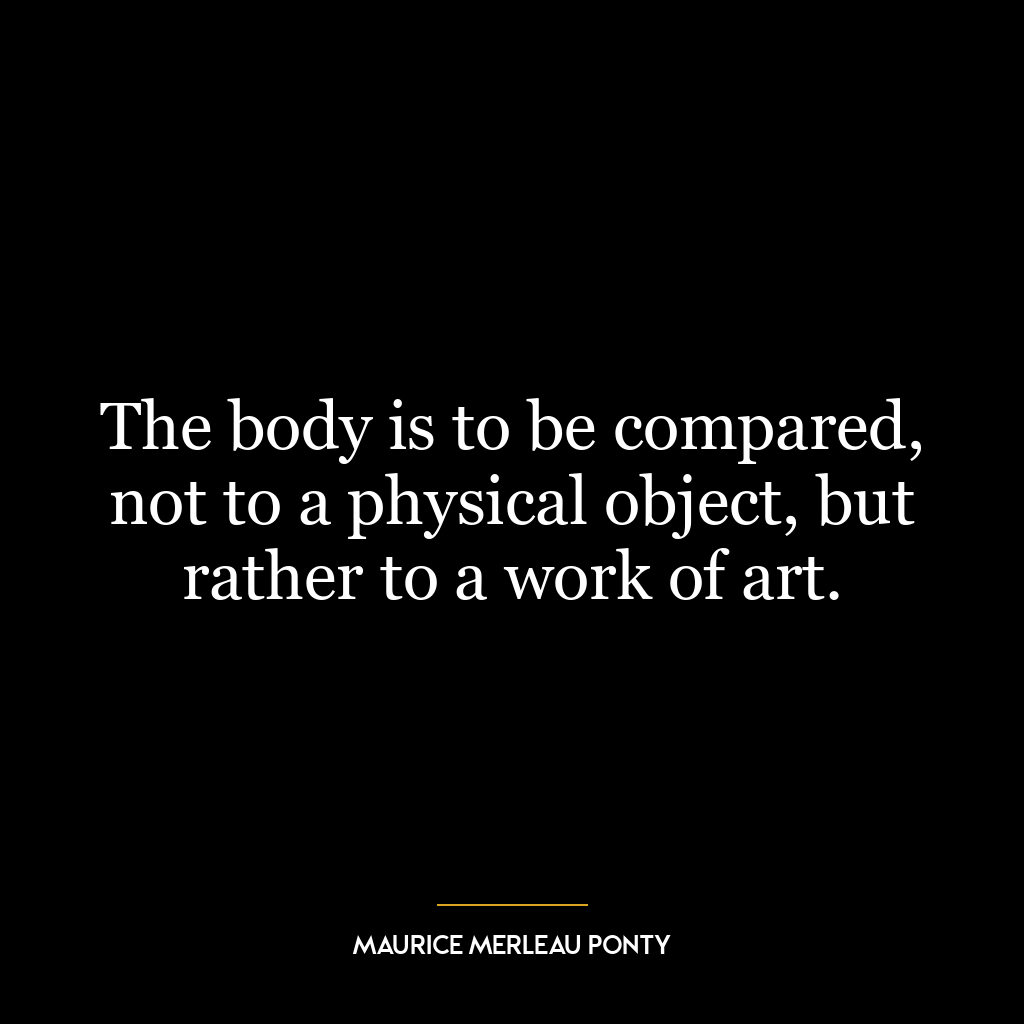Pride gets no pleasure out of having something, only out of having more of it than the next man.
This quote by C. S. Lewis delves into the nature of pride and its relationship with material possessions or achievements. It suggests that pride doesn’t derive satisfaction from simply owning or achieving something, but rather from the knowledge that one has more of it than others. This is because pride is inherently comparative and competitive, always seeking to assert superiority over others.
The quote implies an insatiable hunger for more, a constant comparison with others which can lead to dissatisfaction and unhappiness. It highlights a key aspect of human psychology: our tendency to measure our worth not just by what we have but also by how much more we have than others.
In today’s world, this idea is highly relevant as society often encourages competition and comparison through social media platforms where people regularly showcase their successes or possessions, thus fostering feelings of inadequacy in those who perceive they have less.
In terms of personal development, this quote could serve as a reminder about the pitfalls of comparing oneself with others. Instead of deriving self-worth from having more than someone else – which leads to an endless cycle of competition – one could focus on personal growth, self-improvement and contentment with what they have.
It encourages us to shift our perspective from external validation (how much we are better than someone else) towards internal validation (how much we’ve grown). This shift can lead to increased happiness, peace and satisfaction since it involves focusing on aspects within our control rather than constantly comparing ourselves against variables that are beyond our control – such as other people’s achievements or possessions.








